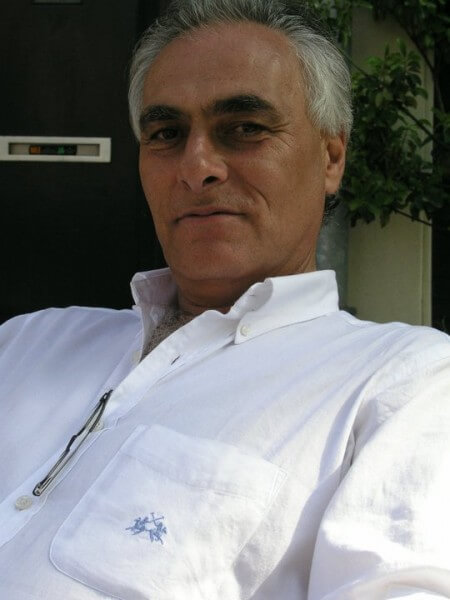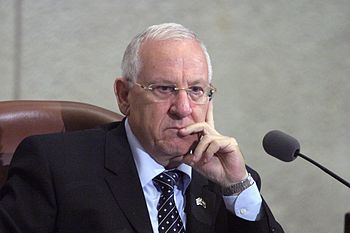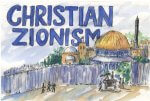By James M. Dorsey

Israel’s multiple fault lines – secular vs religious, Jewish vs Palestine and controversial calls for a boycott of the Jewish state – are exploding on the soccer pitch.
The spill over comes as President Reuven Rivlin warned in a recent speech that Israel was being fragmented by four tribes that view each other’s worldview as a threat. Mr. Rivlin said these exclusionary worldviews were being reinforced by each of the tribes having its own education system that propagates a different culture, religious belief or national identity.
Calling for a partnership in which all groups would feel assured that their way of life is secured, enjoy equal and equitable rights, and share responsibility and an Israeli identity that celebrates its diversity, Mr. Rivlin identified Israel’s tribes as a secular Jewish majority and growing minorities of religious and ultra-religious Jews as well as the country’s Palestinian population.

“If we desire to live with the vision of a Jewish and democratic state as our life’s dream and our heart’s desire, then we need to look bravely at this reality,” Mr. Rivlin said.
If the soccer pitch is anything to go by, Israel is a far ways off from the new order Mr. Rivlin says he is trying to shape.
In a drawing of the secular-religious battle lines, the Israeli Football Association (IFA) said it would cancel all league matches if the government and the judiciary did not lift a recent ban on games being played on the Sabbath. The warning was in response to a ruling by a labour court that ordered postponement of a match because players could not be forced to play on a Sabbath.
The conflict is likely to come to a head with Economy Minister Aryeh Deri, who has the final word, openly siding with the court. Mr. Deri, who has served time for accepting a bribe when he was interior minister in a past government, is a member of Shas, a religious party that advocates stricter observance of the Sabbath.
While fighting the religious on one front, Israeli soccer is internationally on the defensive and domestically divided over allegations of racism and calls for a boycott of, disinvestment from and sanctions against Israel because of its hard line policy towards the West Bank and the Gaza Strip.
A committee established by world soccer body FIFA will begin monitoring Israeli steps to counter racism, including a refusal by top league, storied club Beitar Jerusalem that refuses to hire Palestinian players who are among Israel’s top performers. It also will look at whether Israel will implement promises to ease debilitating restrictions on Palestinian soccer.
Beitar fans created havoc in July during a match against Charleroi in Belgium when they hoisted racist banners of the banned ultra-nationalist Kach party and disrupted the match with flares and objects thrown onto the pitch that struck the Belgian goalkeeper.
Last month, Beitar fans carried a banner into Jerusalem’s Teddy Kollek Stadium with imagery reminiscent of neo-Nazi movements. The banner said ‘Good night left side,” a slogan used by the far right in Eastern Europe, and featured a drawing of a man kicking another man lying on the ground.
Beitar’s racist employment policy and its hard line, anti-Palestinian, anti-Muslim fan base persuaded hundreds of fans to create a fan-owned alternative, Beitar Nordia, Beitar Jerusalem’s name during the pre-state British mandate.
“The purpose is to build a new and clean house from the ground up, for the Beitar fans who were fed up with the racism and violence,” said Yuval Rubovitch, one of the team’s founders.
Beitar Nordia’s backers include Mr. Rivlin, a member of Likud, Prime Minister’s Benyamin Netanyahu’s party, whose leaders largely support Beitar Jerusalem. Mr. Rivlin, who has long been at odds with Mr. Netanyahu, said that Beitar Nordia “brings back to life the heart and the soul that was once the essence of Beitar Jerusalem.”
The FIFA committee’s most thorny task will be tackling Palestinian demands that the inclusion of teams from West Bank Jewish settlements in lower Israeli leagues be seen as a violation of the FIFA charter. The Palestinians charge that the same is true for an Israeli demand that the Palestine Football Association (PFA) “operate through the formal channels of the state of Israel.”
The stakes for Israel are high. The PFA, an independent member of FIFA, agreed in May to withdraw a resolution at the last FIFA congress demanding that Israel’s membership be suspended, in exchange for the creation of the monitoring committee. The committee’s failure to solve the disputes could lead to the Palestinian resolution being again tabled at the next FIFA congress in February.
Meanwhile, a 2016 European Championship qualifier between Israel and Wales in Cardiff is promising to be a battlefield between supporters and opponents of Israeli policies towards the Palestinians.
The battle of Cardiff was shaping up as Britain’s Labour Party was entertaining Jeremy Corbyn as a frontrunner in leadership elections. Supporters of Israel have accused Mr. Corbyn, a member of the Palestine Solidarity Campaign that backs the anti-Israel Cardiff protest who has described groups like Palestine’s Hamas and Lebanon’s Shiite militia Hezbollah as ‘friends,’ of being an anti-Semite.
Hundreds of anti-Israel protesters are planning a demonstration at the stadium as part of the Red Card Israeli Racism campaign in support of demands that FIFA and European soccer body UEFA suspend Israel. The Jewish Chronicle reported that supporters of Israel would stage a “pre-match celebration of Israel.”
The Israeli embassy in Britain was forced to cancel the performance of an Israeli dance group at the match for security reasons. The Cardiff council moreover cancelled an exhibition entitled ‘Jewish-Arab football: diversity and co-existence through lower-league football’ as a result of complaints by unidentified parties.
Israel, concerned about the growing strength of the Boycott, Divestment and Sanctions (BDS) movement, saw the Cardiff match as an opportunity to counter mounting criticism of its policies that threatens the moral high ground Israel claims. BDS has been targeting companies and academic institutions that operate on the West Bank.
Anti-Israel activists claimed a recent success with the reported sale of a majority stake in targeted Israeli cosmetics company Ahava that manufactures on the West Bank to a Chinese investment Fund. Activists said the company had become so tarnished that no US or European investor was willing to bid for it.
“It is unfortunate that we are anticipating an anti-Israel demonstration in Cardiff, which does nothing to promote coexistence in the Middle East or to foster dialogue. Promoting hatred and a divisive ideology, is not only foreign to the sport of football and to sports in general, but cannot advance the cause of peace between Israelis and Palestinians,” the Israeli embassy said in a statement.
James M. Dorsey is a senior fellow at the S. Rajaratnam School of International Studies as Nanyang Technological University in Singapore, co-director of the Institute of Fan Culture of the University of Würzburg and the author of the blog, The Turbulent World of Middle East Soccer, and a forthcoming book with the same title.


- Soccer highlights domestic drivers in Saudi-Iranian dispute - January 4, 2016
- Soccer: Iranian moderates and hardliner lock horns on the pitch - December 29, 2015
- Trade unions test Qatari sincerity with demands for labour reform - December 20, 2015
























